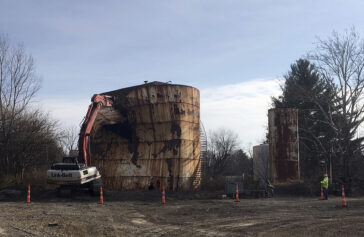Aug. 06, 2021
Beat of the Week
(Honorable Mention)
AP reveals threat of abandoned, leaking oil and gas wells in US
teamed up in all-formats to highlight the environmental crisis of an estimated 2 million abandoned oil and gas wells in the United States.Overcoming the reluctance of landowners fearful their property values would decline if they went public, energy and climate reporter Bussewitz found a fourth-generation Texas rancher who described her beloved land as a “swiss cheese of old oil wells that are just falling apart.” Bussewitz shared the byline with national writer and visual journalist Irvine, who shot video of the site where the rancher had moved 600 head of cattle that may have drunk contaminated water, then combined it with drone footage from the ranch, along with historical photos and footage of abandoned wells. Photographer Gay made striking images of that ranch and another where the rancher had to sue the state of Texas to plug orphaned wells.Data analyst Fenn and digital artist Duckett leveraged that data into interactives, including an exclusive nationwide map that depicted the known orphaned wells in each state, and producers Hamlin and Shotzbarger, with photo editor Goodman, built a powerful presentation on AP News.https://aplink.news/nr5https://aplink.video/rwuhttps://interactives.ap.org/em...https://interactives.ap.org/te...

















